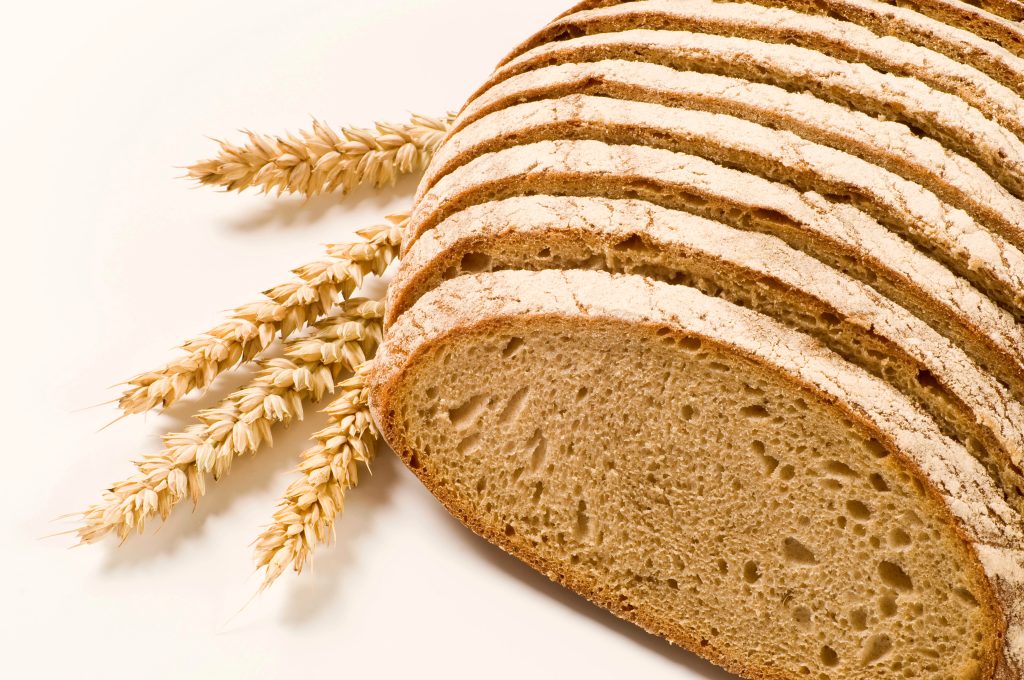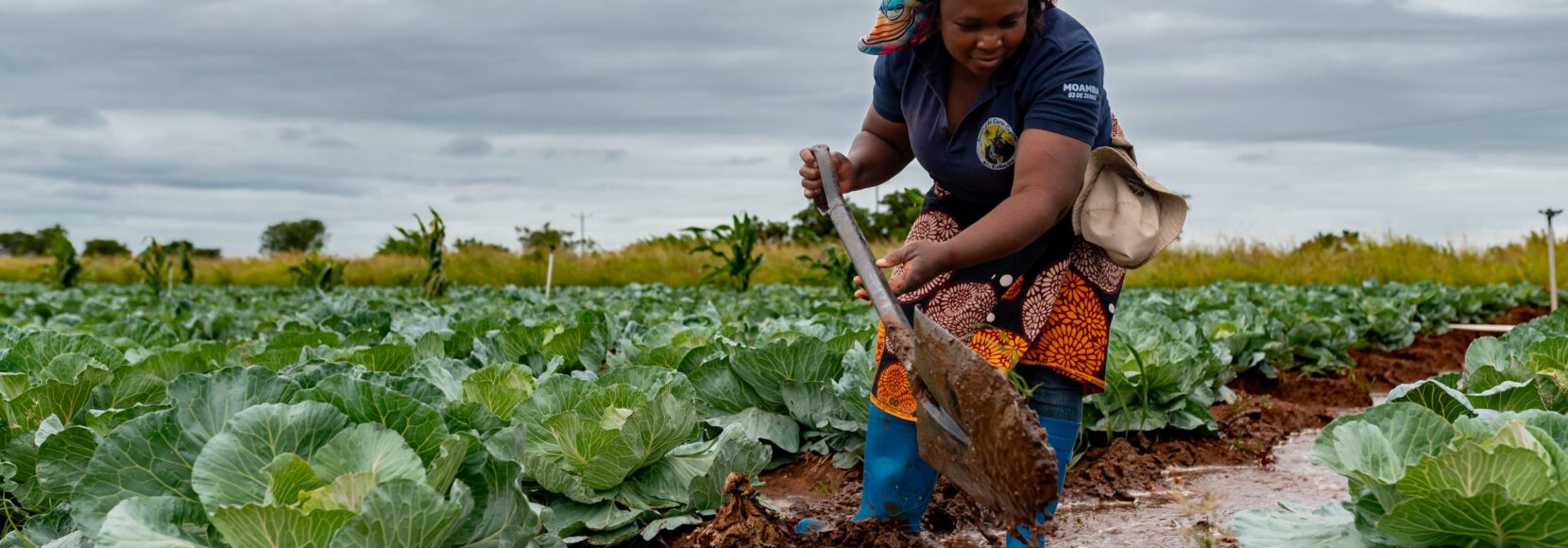
Enhancing Nutrition and Food Security: The Role of Millers in Kenya
Dive into the transformative role of the Inaugural Kenya Food Processing and Nutrition Leadership Forum in fostering improved nutrition, by launching the innovative Kenya Millers Fortification Index. Learn about this self-regulatory industry initiative towards creating a healthier future for Kenya.

A young woman boils a pot of water over a hot stove before dropping a box of pasta into its depths. In another country, a man consumes a few slices of bread. And across other borders, a child slurps a bowl of noodles, nourishing themselves after a day at school. You may not realize it, but food processors, and flour millers specifically, made all of these meals possible. In fact, more than 600 million tons of wheat and maize flour are produced annually worldwide and consumed as local dishes,, bread, pasta, and other bakery products. Although consumers may consider a wide range of factors when making their purchasing decisions, the commitment of food processors to provide high-quality products is an essential component in ensuring food security worldwide.
In Kenya, staple foods include cereals such as maize, millet, and sorghum. Food processors and government food control agencies are responsible for providing safe and high-quality food staples to the growing population, which is expected to reach 85 million by 2050.
While millers have not typically been positioned at the forefront of the conversation on food security and nutrition, they are now working to change that, to further enhance the impact of the desired improvement in the national health status of vulnerable populations. By strengthening the industry’s resolve to overcome several enabling environmental barriers, millers can help food fortification efforts reach their full potential. As a result of Large-Scale Food Fortification (LSFF) initiatives, the prevalence of stunting has decreased from 26% in 2014 to 18% in 2022. However, 18% of children under age 5 are still stunted or too short for their age – a sign of chronic undernutrition. What’s more, 32% of children are anemic, which may hinder their learning abilities and increase their risk of infection due to compromised immunity.
This June, TechnoServe and the Cereal Millers Association (CMA) will convene the first Kenya Food Processing and Nutrition Leadership Forum (CEO Forum) to bring together stakeholders from the private sector, government, and civil society. The gathering will highlight the role of millers in supporting nutrition, address shared challenges, and discuss innovative solutions by officially launching the Kenya Millers Fortification Index (KMFI).
The CMA represents approximately 40% of the total maize millers and over 90% of wheat millers in Kenya. The association serves over 30 million people by providing safe and affordable food and is committed to advancing food fortification standards in the country by institutionalizing the practice amongst its member millers. “The Cereal Millers Association is very committed to providing safe and affordable food for its consumers,” says CMA Chief Executive Officer, Paloma Fernandes. “I’d like to say that we are passionate about food safety. We have a code of conduct that self-regulates our members to provide safe food.”
A Forum Modeled After Achievements Made in Nigeria
In 2018, with support from the Bill & Melinda Gates Foundation (BMGF), we started a Large Scale Food Fortification (LSFF) program to address nutrition issues in Nigeria by leveraging global expertise and providing Tailored Technical Assistance (TTA) to leading food processors in collaboration with Partners in Food Solutions (PFS), a nonprofit organization that links the technical and business expertise of volunteer employees from General Mills, Cargill, Royal DSM, Bühler, Ardent Mills, and The Hershey Company.
TechnoServe brought together food processing executives and Nigerian government leaders for annual leadership events that provided an opportunity for cross-sector collaboration on national fortification initiatives and have been critical in providing a platform that facilitates ongoing dialogue and performance reporting against collective commitments under the Micronutrient Fortification Index (MFI).
TechnoServe’s Role
At the Kenya Food Processing and Nutrition Leadership (CEO) Forum, TechnoServe will identify stakeholders and influencers to convene key industry players, modeled after the success of the Strengthening African Processors of Fortified Foods Program in Nigeria.
We will also bring expertise from our Technical Assistance Accelerator Program (TAAP), funded by the BMGF, which works with staple food processors across 8 geographies across Africa and Asia (including Kenya) to address malnutrition at scale. The initiative recognizes that improving nutrition requires a sustainable commercial strategy, engaging food processors as influential allies.
The TAAP program has worked with CMA millers to support their efforts to meet mandatory national standards of fortification and food safety through a number of activities, such as sharing industry wide performance data, conducting sector-wide trainings, and collaborating on the development of the KMFI’s methodology and pilot exercise.
What is the KMFI?
The Kenya Millers Fortification Index (KMFI) is the first of its kind, an industry-led self-regulatory mechanism, with participating companies’ performance eventually culminating in a ranked list. It aims to facilitate and strengthen the commitment of leading flour millers toward providing consumers with greater access to nutritious and sufficiently fortified food products on the basis of industry quality benchmarks, with the intention of scaling the initiative to include other staple foods. This will be achieved through their participation in the platform and award scheme, where they can place improved nutrition at the core of their brand-building efforts and project a mark of quality to consumers. The CEO Forum will also give companies the chance to review progress made as an industry.
“The importance of having a self-regulatory system that’s industry-led is really for us to ensure that there’s broader adoption and ownership of this initiative. What that allows us to do is really position the KMFI as something that is sustainable, adaptable, and adequately speaks to the needs of the industry,” says Tobi Durotoye, Deputy Program Director of the Technical Assistance Accelerator Program (TAAP) at TechnoServe.
“Scaling up the KMFI is going to be extremely important,” says Tobi Durotoye. “Right now, it’s primarily focused on wheat flour and maize flour millers, but we hope to eventually expand to edible oil processors as well, which will also demonstrate the index’s ability to capture a critical mass of the staple food industry’s market share.”
“The KMFI is probably going to provide us with a lot of data. We hope this is a really good place to start from,” says CMA Chief Executive Officer, Paloma Fernandes. “One of the benefits of the KMFI is that, apart from having a lot of industry consultation, we’ve also found that it is a way to incentivize millers. And while incentivizing the millers, we can make sure they’re producing a lot of nutritious food.”
The Kenya Millers Fortification Index (KMFI): A Collective Effort for Nutritious and Fortified Food Options

Food millers play a vital role in ensuring food security and improving nutrition worldwide. In Kenya, where staple foods like maize and wheat are essential, millers have been actively working towards fortifying food products to combat malnutrition and enhance public health. Through initiatives like the Kenya Millers Fortification Index (KMFI), millers are taking collective action to provide consumers with nutritious and fortified food options.
The upcoming Kenya Food Processing and Nutrition Leadership (CEO) Forum will serve as a platform to address challenges, share best practices, and promote collaboration among key stakeholders. As the KMFI expands to include other staple foods and the participation of more industry players, it has the potential to make a significant impact on addressing malnutrition and improving food security on a larger scale. Through the concerted efforts of millers, government agencies, and civil society, the path towards a healthier and more nourished population in Kenya is being paved.





